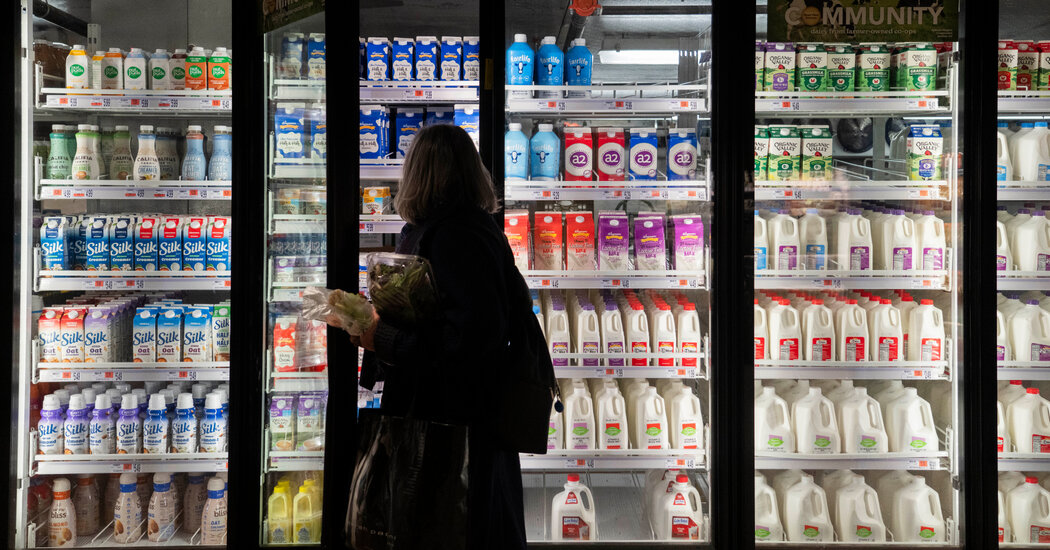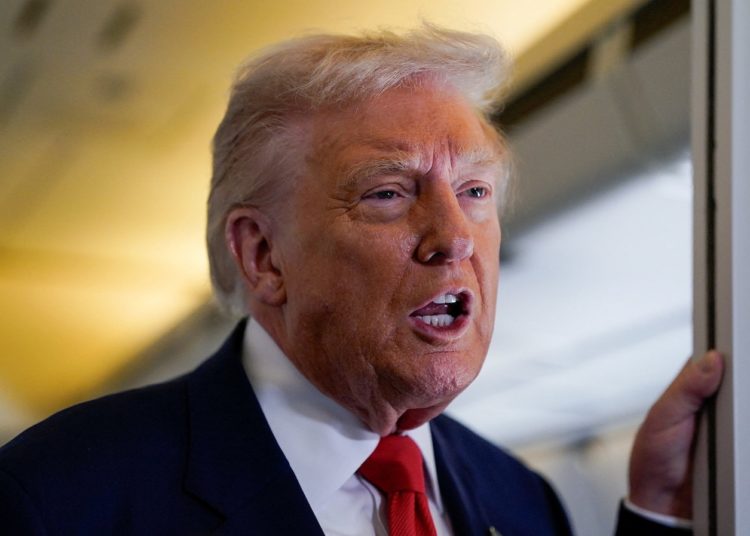A federal judge is expected to decide on Friday if the Trump administration must continue to fund food stamps during the government shutdown, as state officials scramble to spare millions of low-income Americans from losing benefits starting on Saturday.
The looming decision from Judge Indira Talwani, of the U.S. District Court for the District of Massachusetts, comes as the administration holds firm in its refusal to tap billions of dollars in reserve to aid roughly 42 million people at risk of hunger.
The legal wrangling concerns the Supplemental Nutrition Assistance Program, or SNAP. Without a last-minute intervention, the decades-old safety net program is set to run out of funds on Nov. 1, exacting a substantial economic toll on the poorest families more than four weeks into a shutdown seemingly without an end in sight.
Despite the imminent lapse, the Trump administration has maintained that it would not try to cover the shortfall, not even by using billions of dollars set aside for SNAP to address funding emergencies. That prompted 25 states and the District of Columbia to sue this week, arguing that the White House had a legal and moral obligation to provide the benefits.
During a tense hearing on Thursday, Judge Talwani appeared to doubt the government’s claims that there were legal, technical and budgetary hurdles to reprogramming the money during the shutdown.
“Congress has put money in an emergency fund,” she said during the hearing. “It’s hard for me to understand how this isn’t an emergency, when there’s no money and a lot of people are needing their SNAP benefits.”
But it remained unclear how the judge’s ruling might shape the immediate fate of the program, which serves roughly one in eight people in the United States. In defending its actions, the Trump administration had previously suggested that it could take weeks just to provide payments in November, and that the amounts could be half as much as recipients usually receive.
Nor was it immediately clear if the Justice Department might try to appeal any adverse ruling, perhaps further delaying aid. The White House did not respond to a request for comment.
A loss for the Trump administration on Friday would amount to a major rebuke of the White House. This week, President Trump’s leading deputies maintained that they could do little to save SNAP — even after taking unusual steps to rearrange the budget to sustain other programs while the government remained closed.
“The American people are already suffering, and the suffering is going to get a lot worse,” Vice President JD Vance said on Thursday, insisting that Mr. Trump had “tried to do everything” in his power to make the shutdown as “unpainless as possible.”
With SNAP, the potential loss of federal aid could inflict severe financial distress on some of the poorest families and communities around the country. Fearing the end of federal support, a handful of states have scrounged in recent days to provide food stamps on their own, though many have said that they can only provision aid for a few days or weeks.
SNAP benefits, which average around $187 a month per recipient, are critical to preventing hunger. They cost the federal government about $8 billion monthly, which lawmakers must regularly replenish as part of their work to fund the government.
SNAP also maintains a reserve in case of emergencies or shortfalls, which many Democrats and Republicans have encouraged the Trump administration to tap during the shutdown. The reserve currently stands at about $5 billion, enough to provide at least partial payments next month. The Agriculture Department initially said it would take that step if the government remained closed.
But the Trump administration abruptly reversed the policy in late October, saying that it could not legally drain its available reserves, except in response to natural disasters. The move prompted officials in Arizona, California, New York, Massachusetts, Nevada and other states to file their lawsuit.
“Millions of Americans will lose the benefits they’ve had for decades,” said Michelle Pascucci, a lawyer for the attorney general of Massachusetts, who represented the states in oral arguments held before Judge Talwani on Thursday.
In filings submitted ahead of the hearing, the Trump administration reaffirmed its opposition to using the emergency funds, even as it acknowledged it had ample leftover money there and in other accounts to spare millions of people from benefit cuts. Officials told the court that the law did not allow them to transfer or spend the cash absent a clear directive from Congress.
“What a sick joke,” said Senator Patty Murray of Washington, the top Democrat on the Appropriations Committee. “The fact is: funding exists to keep SNAP benefits flowing, and President Trump has instead chosen to force millions of Americans to go hungry.”
Maya Shwayder contributed reporting from Boston, Mass.
Tony Romm is a reporter covering economic policy and the Trump administration for The Times, based in Washington.
The post Federal Court to Rule on Fate of Food Stamps During the Shutdown appeared first on New York Times.




